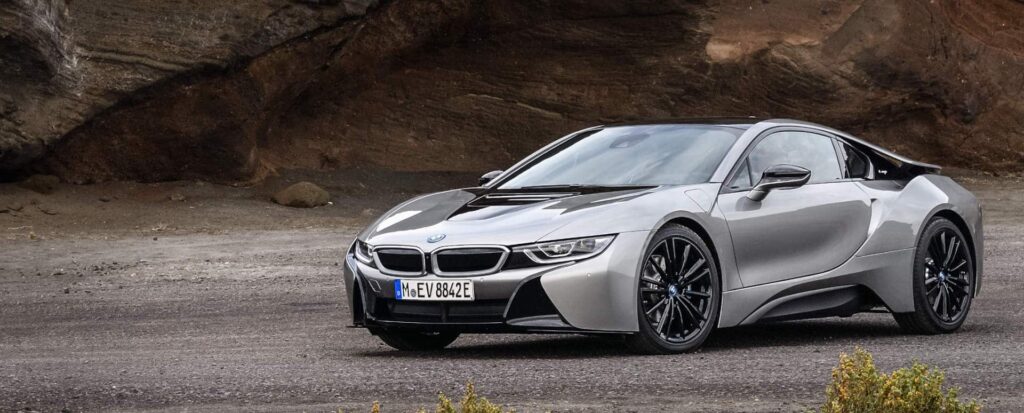A Comprehensive Guide to Hybrid Cars

Hybrid cars have been a crucial topic in the automotive industry. The need for an alternative to the polluting, gas guzzlers, of the past is strong. People have started to take notice and they are demanding an alternative. The automotive manufacturers have replied with new lines of hybrid vehicles that are making a new splash in the industry. A hybrid car is a vehicle that uses a combination of gasoline and electricity to power its engines. They typically have a small gasoline engine and an electric motor that work together to provide propulsion.
The gasoline engine is mainly the power source. It is used to help speed up the cars when the more power is needed such as when going up a hill. The gasoline engine charges the battery and provides power to the electric motor when the electric motor assists the gasoline engine during acceleration and can power the vehicles. This combination of gasoline and electric power results in improved fuel efficiency and reduced emissions compared to traditional gasoline-powered vehicles.
TYPES OF HYBRID VEHICLES:
There are several types of hybrid cars including,
- Fuel Cell Electric Vehicle (FCEV): These types of vehicles use a fuel cell to convert hydrogen into electricity, which is used to power the electric motor. They emit only water vapor and have a longer driving range than battery electric vehicles, but are not yet widely available.

- Full Hybrid: Full hybrids are also known as parallel hybrids, these vehicles can run on either the electric motor, the gasoline engine, or a combination of both. They typically use regenerative braking to recharge the battery and can switch between power sources automatically.
- Range Extended Electric Vehicle (REEV): These vehicles have a smaller battery than a PHEV, but a larger gasoline engine. The electric motor is used primarily to assist the gasoline engine but can provide electric-only driving for short distances.
- Plug-in Hybrid Electric Vehicle (PHEV): These vehicles have larger batteries in comparison to full hybrids and can even be plugged into an external power source to recharge. They can run on electricity alone for a certain distance before the gasoline engine takes over.
- Mild Hybrid: These vehicles use a smaller electric motor and battery to assist the gasoline engine, but cannot run on electricity alone. They are designed to improve fuel efficiency and reduce emissions but do not offer the same level of electric-only driving as full hybrids or PHEVs
- Hybrid Electric Sports Car: These cars with a higher performance level combine electric motors with powerful gasoline engines for improved acceleration and fuel efficiency.
- Plug-in Hybrid Electric SUV (PHEV SUV): These are hybrid vehicles designed in the form of an SUV that uses both a gasoline engine and an electric motor, and can be charged through an external power source.
Moreover, each type of hybrid vehicle has its pros and cons, and the right choice depends on the driver’s needs and preferences. Additionally, hybrid vehicles also offer numerous advantages in comparison to gasoline-powered cars. Below are some of the few benefits that we gain from a hybrid car,
- Less wasted energy: The gasoline engine is only used when it is needed. Additionally, a hybrid features several innovations that help to capture any wasted energy and put it to use in the car’s operation.
- Fewer emissions: Since the gasoline engine is not working most of the time, there are far fewer emissions. The electric motor does not give off emissions that are harmful and damaging like gasoline engines. A hybrid car emits fewer pollutants into the air than traditional gasoline-powered cars, which can help reduce air pollution and improve air quality.
- Less fuel consumption: A hybrid car typically achieves better fuel economy than traditional gasoline-powered cars because they have combined the use of a gasoline engine with an electric motor and battery. Overall The features like regenerative braking, electric motor assist, engine shut-off, aerodynamics, and efficient gasoline engine work together to achieve better fuel economy. while your hybrid will use some fuel to operate the gasoline engine, depending on the type of driving you to do.
- Regenerative braking: As mentioned earlier, hybrid vehicles can use regenerative braking to convert kinetic energy into electrical energy, which can reduce wear on the brakes and also improves fuel economy.
- Less repairing and maintenance: In general, hybrids are built to be strong. They don’t suffer from a lot of the issues that gasoline cars suffer. One of the main reasons for this is how clean the electric motor operates. There is less wear and tear.
- Tax incentives: Many governments also offer tax incentives and rebates for purchasing hybrid vehicles, which can help buyers to purchase the cars at more affordable and reasonable prices.

- Reduced dependence on fossil fuels: We all are well known of the fact that a hybrid car uses electricity and alternative sources of energy to power the electric motor, therefore as the result, these cars have reduced our dependence on fossil fuels.
- Good resale value: Hybrid vehicles know very well how to retain their value, which in the end makes them a good investment for buyers who are looking for long-term savings, this means that when a person wants to invest money in some good and valuable thing so he or she can purchase a hybrid car and when he or she needed the money so he or she can sell the car and in return they will earn a good and valuable amount of money.
Additionally, a hybrid car has become increasingly popular due to its improved fuel efficiency, lower emissions, and reduced operating costs. They also offer a quieter and smoother driving experience. Further, they also do not suffer from the regular charging hassles of fully electric cars, this is because a hybrid car can charge the electric engine as it is driven.
While there are a lot of advantages of hybrid vehicles there are also some drawbacks of it like they can be more expensive than traditional gas-powered vehicles, also the batteries used in hybrid cars may eventually need to be replaced time by time, which can be more costly.
In conclusion, hybrid cars can be a good choice for those who are looking to reduce their environmental impact and save money on fuel costs. Overall it is also necessary to have a look and consider all the other factors like cost and maintenance, before deciding on whether to purchase a hybrid vehicle.

























































































































































































































































































































































































































































































































































































































































![Fixing [pii_email_aa0fea1a78a192ae7d0f] Microsoft Outlook Error](https://www.huffenpost.com/wp-content/uploads/2023/03/What-Causes-the.jpg)
![Fixing [pii_email_aa0fea1a78a192ae7d0f] Microsoft Outlook Error](https://www.huffenpost.com/wp-content/uploads/2023/03/How-to-fix-the-1-1024x1024.webp)
![Quick fixes for the [pii_email_dbd9dd084703ead3b9cf] Mail Error](https://www.huffenpost.com/wp-content/uploads/2023/03/How-to-Avoid-pii_email_b6b14f95f44a83737071-Outlook-Error-1024x576.jpg)
![How to fix the [pii_email_bbf95bff57a974a71da8] in Microsoft Outlook?](https://www.huffenpost.com/wp-content/uploads/2023/03/How-To-Solve-The-pii_email_9e750e335dfd9d75badb-Outlook-Error.webp)
![How to solve the [pii_email_b6b14f95f44a83737071] Outlook Error](https://www.huffenpost.com/wp-content/uploads/2023/03/How-to-Avoid-pii_email_b6b14f95f44a83737071-Outlook-Error.png)
![Ways to fix the "[pii_email_1fb861393abed78ab415] Error](https://www.huffenpost.com/wp-content/uploads/2023/03/pii_pn_56e685559f213991c933-Error-Causes-and-Solutions2.jpg)
![How to Fix the [pii_email_e2f55b4aa7bb667da6d9] Error](https://www.huffenpost.com/wp-content/uploads/2023/03/How-to-fix-the.webp)
![What Everyone Should Know About [pii_email_59ea919492dfc2762030]](https://www.huffenpost.com/wp-content/uploads/2023/03/pii_email_aa0fea1a78a192ae7d0f-Email-Error-and-Its-Solutions-1024x683.jpg)
![How to Fix the [pii_pn_5359771d15a46e7b88bf] Outlook Email Error](https://www.huffenpost.com/wp-content/uploads/2023/03/pii_email_57a4a2f20ec6813a8481-SMTP-Error-Solution-2.jpg)


























































































